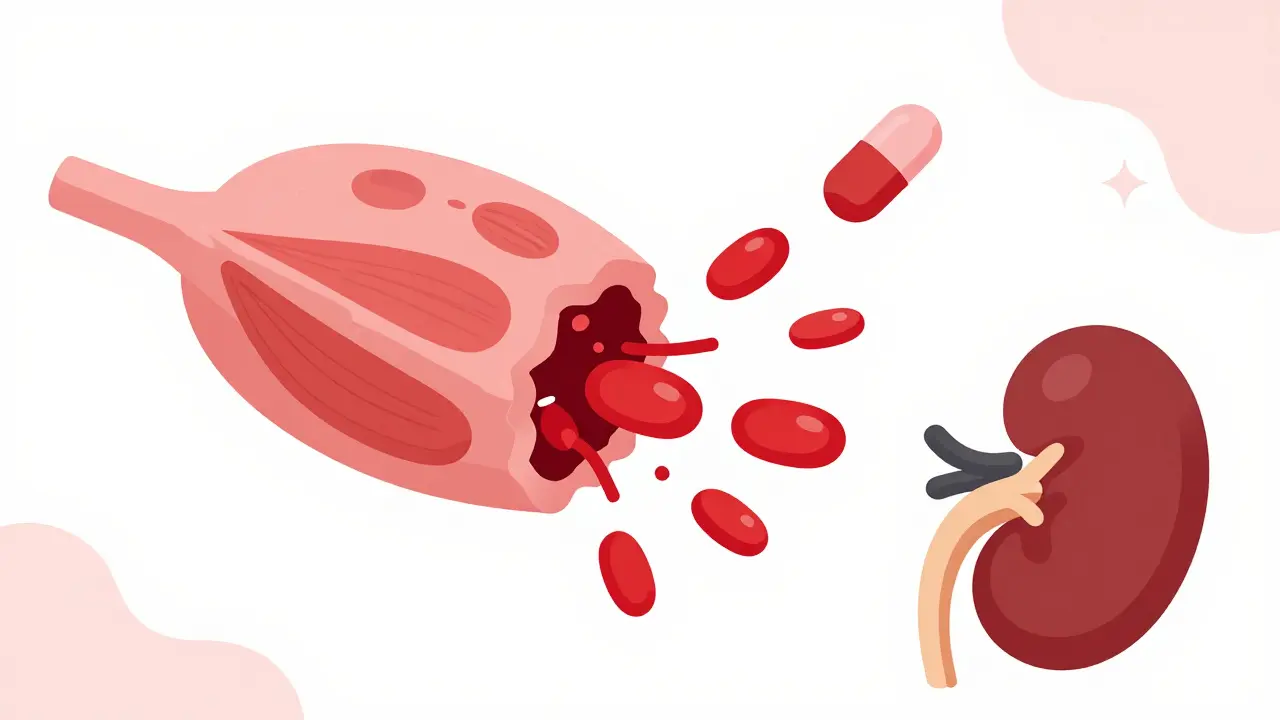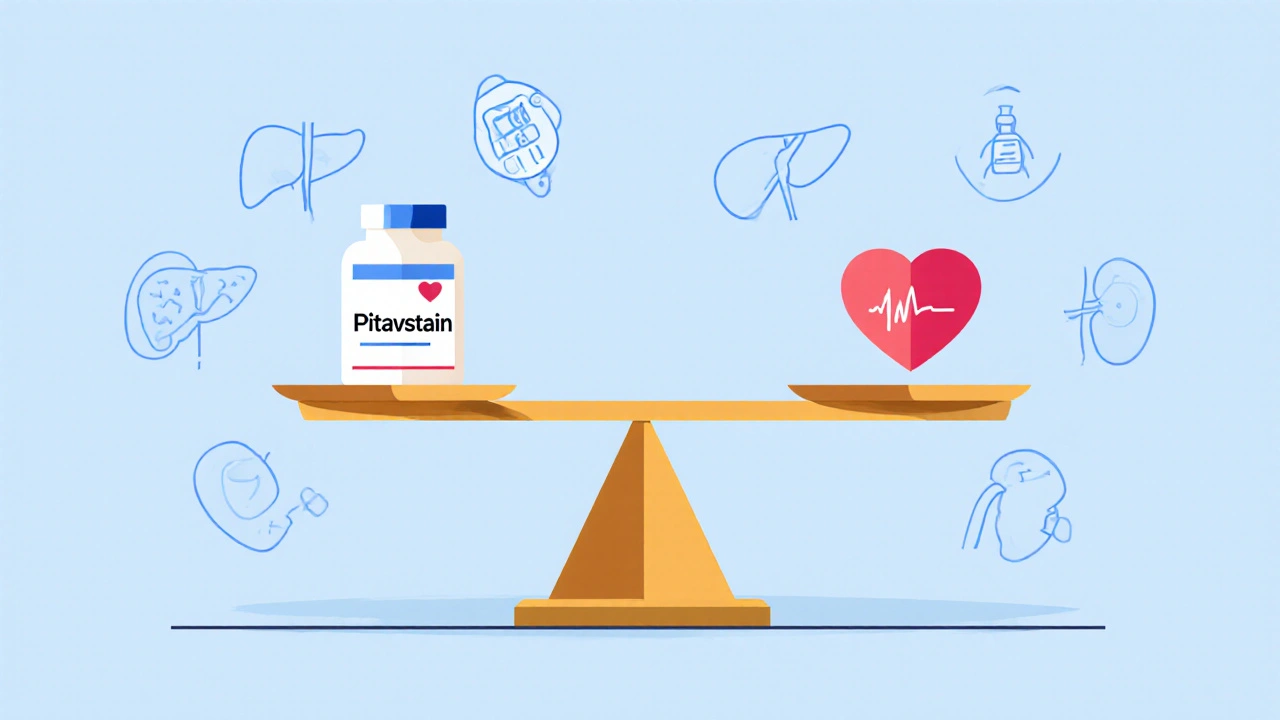Statin Side Effects: What You Need to Know Before You Take Them
When you’re prescribed a statin, a class of drugs used to lower LDL cholesterol and reduce heart attack risk. Also known as HMG-CoA reductase inhibitors, they’re among the most widely prescribed medications in the world. But for all their benefits, statin side effects are real—and many people stop taking them because of them. You’re not alone if you’ve felt muscle soreness, fatigue, or confusion after starting one. The question isn’t whether side effects happen—it’s how to recognize which ones matter and what to do next.
Not all side effects are the same. The most common is muscle pain, a dull ache or weakness, often in the thighs or shoulders, that doesn’t go away with rest. It’s not always a sign you need to quit—sometimes it’s just your body adjusting. But if the pain is severe, or you notice dark urine, that’s a red flag for rhabdomyolysis, a rare but dangerous breakdown of muscle tissue that can damage kidneys. Then there’s liver enzyme changes, a lab result that often worries patients, but rarely means actual liver damage. Your doctor checks this with a simple blood test, and it usually returns to normal without stopping the drug.
Some people report brain fog or memory issues. Studies haven’t proven statins cause lasting memory loss, but if you feel off, talk to your provider. It could be the statin, or it could be stress, sleep, or something else. What’s important is that you don’t ignore it. There are also less talked-about effects—like increased blood sugar, which can raise diabetes risk in people already at risk. That’s why your doctor should monitor your glucose levels, especially if you’re overweight or prediabetic.
Here’s the thing: most people tolerate statins just fine. But if you’re one of the ones who isn’t, you have options. Maybe switching to a different statin helps—some cause fewer muscle issues. Maybe lowering the dose works. Or maybe you need a non-statin option like ezetimibe or a PCSK9 inhibitor. The goal isn’t to avoid statins at all costs—it’s to find the right balance between heart protection and quality of life.
Below, you’ll find real patient experiences and expert advice on managing these effects. From how to track symptoms that matter, to what supplements might help (and which ones to avoid), to when it’s time to ask for a different plan—you’ll see how others handled it, and what actually worked. No fluff. No scare tactics. Just clear, practical info to help you make smarter choices with your health.
Rhabdomyolysis from Statins: Rare but Serious Muscle Breakdown
Rhabdomyolysis from statins is rare but life-threatening. Learn the signs, risk factors, and how to stay safe while still benefiting from cholesterol-lowering therapy.
Read MoreNocebo Effect and Statin Side Effects: Why Most Symptoms Aren’t From the Drug
Most people who blame statins for muscle pain are actually experiencing the nocebo effect - where expectations cause symptoms. Research shows 90% of side effects are tied to fear, not the drug. Learn how to tell the difference and get back on track.
Read MorePitavastatin and Diabetes Risk: What You Need to Know About Its Metabolic Effects
Pitavastatin offers effective cholesterol control with a lower risk of raising blood sugar than other statins. Learn why it's becoming the preferred choice for people with prediabetes or metabolic syndrome.
Read More


